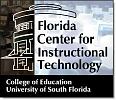- Appendix A: General Web Resources
- Appendix B: Subject-Specific Web Resources
- Appendix C: Search Tools
- Appendix D: E-Mail Activities
- Appendix E: Activity Answers
- Appendix F: Glossary
- Appendix G: References
- Appendix H: Credits
Appendix D: E-mail activities
This section provides ideas for integrating e-mail activities into the curricula. Although they are categorized by subject area, many of the activities apply to more than one area.
Plant Growing Contest
Students from a variety of geographical areas throughout the world plant the
same kind of seeds on the same day, follow the same directions for care of
the plants as they grow, measure the plants, and send data to other participants
so they can use these data for graphing, analyses, and drawing conclusions.
Weather Watch
Students exchange, compare, and graph weather information with other students
across the country and around the world.
Pollution Patrol
Students measure the quality of the air and water (in lakes, oceans, or rain)
and compare findings with students in other parts of the world. The impact
of pollution and environmental factors can be addressed.
Sun and Shadows
Students throughout the world measure the length of shadows cast at the same
time on the same date. Comparisons between latitude, shadow length, and time
of year can be analyzed. Measures must be standardized (using metrics).
Price is Right
Students conduct surveys, collecting and comparing food, gas, or clothing
prices from around the world.
Language Arts
Round Robin Stories
Students in participating classes start a story. Each story-starter is sent
to a predetermined class, and the students add a new section to the story.
Stories continue to rotate to the different classes until each story reaches
the original class. Graphics can be added to illustrate the stories or create
a book.
Tales to Tell
Exchange and collect regional, ethnic, and urban folktales from various parts
of the world (or country). Compare common themes, and discover what makes
each story unique.
Make-a-Monster
Students write an original, detailed description of a monster. Descriptions
are sent to another class. Students in the second class create a picture of
the monster from the written description. Results are displayed with the text
in both classrooms or posted on the Web.
The Other Side
Contact another school and play Tom Snyder Productions "The Other Side"
- a software program that requires students to build a bridge between two
countries while maintaining a stable economy and national security.
Geography Game
Each class sends local information such as the latitude, weather, natural
resources, etc. to a facilitator. The facilitator sends the information to
all participating classes and they must determine the locations based on the
data provided.
Map Skills
Students from various parts of the world exchange postcards. Each class then
connects the postcards to a large map as they arrive. Another idea is to have
the students plan a fictional trip to visit their keypals, analyzing the best
routes and modes of transportation, amount of money needed, and sites to see
when they arrive.
Sister Schools
A sister schools project between schools in the State of Florida and schools
throughout The Newly Independent States (NIS) of the Former Soviet Union (Belarus,
Kazakhstan, Russia, Ukraine and Uzbekistan) has been in operation since 1991.
In carrying out this project, telecommunications becomes a tool used by teachers
and students. Students in the distant schools communicate through e-mail and
work on collaborative projects. If possible, they also plan trips to visit
their keypals.
As a result of the school pairings, more than 824 students and educators have had the opportunity to travel (with funds from the United States Information Agency awarded annually to the Miami Carol City Adult Education Center).
The purpose of the project is to foster understanding at the grassroots level through mutual work on cooperative educational projects. The idea of the exchange is to begin an ongoing relationship between two schools by planning a collaborative project, not just to travel.
Each school pairing (FL-NIS) creates a joint student project with research, analysis of data and an action component to be carried out in each home country. Students collaborate on a project, gaining skills needed to understand global problems.
For more information about the Sister Schools Project in Florida, contact Dr. Fran Winfrey at winfref@mail.firn.edu or call 305-621-5681, extension 221.
Language Learning
Contact a teacher in a country whose language your class is studying and arrange
for students to exchange "real-life" communication. If each school
has a relatively fast Internet connection, a microphone, and an audio card,
the communications can take place through Internet telephone technologies.
Translating Text
Search on the Internet and locate newspapers, articles, or Web pages written
in a foreign language for your students to translate.
Fine Arts
Television Time
Contact students in other states and countries to survey their favorite television
shows, movies, or other pastimes. Students can investigate issues such as:
"Students in which countries (or states) watch the most television? Which
countries produce their own TV programs, and which ones dub their language
on imported programs? How do the commercials differ from country to country?"
The Cost of Culture
In some countries, cultural performances, such as ballets are subsidized by
the government. Conduct surveys to find out how much a concert would cost
in proportion to an average daily salary. Is a professional ballet more expensive
or less expensive than a movie? Are the museums free for the public, or is
there a fee?
||
Contents ||
Introduction ||
Internet Basics ||
Becoming Good Netizens ||
Productivity Tools ||
||
Communication Tools ||
Research Tools ||
Problem-Solving Tools ||
Appendices ||
 | Florida
Center for Instructional Technology College of Education, University of South Florida, 4202 E. Fowler Ave., EDU 147 Tampa, Florida 33620 © Florida Center for Instructional Technology, 1995-2013 |
Last updated 02/09/04